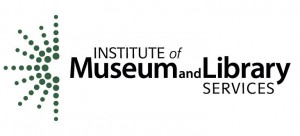The POWRR team has been deep in reflection mode since the first Institute in December. We’ve been reading the participant evaluations and talking to one another about what seemed to work and what might need some tinkering before the next event. The feedback has been very positive and constructive, and we’re sure it will help us to make future Institutes even stronger.
Rather than having one of the instructors write up a redux of the event, we decided to see if one of our participants would be willing to speak about their experiences instead. To our surprise, it only took one ask. 🙂 We are very lucky to have Krista McCracken as a guest blogger!
Krista McCracken is a public history professional and archivist, and currently serves as Archives Supervisor at Algoma University’s Arthur A. Wishart Library and Shingwauk Residential Schools Centre in Baawating (Sault Ste. Marie, Ontario) on the traditional territory of the Anishinaabe and Métis people. Krista’s research interests include community archives, residential schools, access, and outreach. You can check our Krista’s research and writing on her website, or follow her on Twitter.
“Digital POWRR Institute Reflections” by Krista McCracken
(The following post first appeared on Krista’s blog on December 5, 2017.)
Last week I attended the inaugural Digital POWRR Institute in Naperville, IL. Since 2012, the Preserving digital Objects With Restricted Resources (Digital POWRR) project has been trying to breakdown digital preservation barriers to a wider range of information professionals. Building on their past workshop model, the POWRR Institutes are designed to provide hands-on learning experiences, are offered free of charge as a way of breaking down cost barriers, and include sessions with digital preservation practitioners.
The two-day Institute in Naperville was fantastic. It included a theoretical introduction to digital preservation, covered some of the big challenges of getting started with digital preservation, and included a whole lot of ‘playing with all the things’ opportunities where we had a chance to actually test digital preservation tools. Hands-on workshops included an introduction to the workflow tools (including the open source tools: DataAccessioner, Bagger, and Fixity), web archiving, Archivematica, digital storage, and recovering outdated media.
The Institute was designed in the cohort model – it included 30 participants, but we were then broken into smaller cohort groups with similar backgrounds. For example, a number of the members of my group came from small post-secondary backgrounds. The cohort model allowed you to get to know others at the workshop on a more personal level and also allowed participants the opportunity to learn from each other. The community skill building mentality that was fostered by the cohorts is something I wish more conferences would attempt.
For me the highlight of the Institute was the POWRR Plan that we created while attending. Each participant was asked to survey their current digital preservation level and come up with a pilot project for moving digital preservation processes forward. The pilot project was then used to build goals and action items associated with 3, 6, and 12 month milestones. The Plan included tangible outcomes, small setups towards better digital preservation, and realistic goals. Each Institute participant also had the opportunity to talk one-on-one with an instructor and develop their plan within that consultation framework.
I love the POWRR Plan idea. I often come away from workshops full of enthusiasm and ideas but unsure of how to apply them to my day-to-day work. The POWRR Plan helped solidify steps I can make towards better digital preservation strategies and left me with something to reflect on once I returned home. I am hopeful that in the coming months I can make solid headway on my pilot project and goals.
I would recommend this workshop to anyone with digital preservation responsibilities in a small archive or library, particularly if they have a limited budget or a limited staff. Four additional Institutes will be offered in 2018 and 2019 and applications for the second Institute are now available online.


